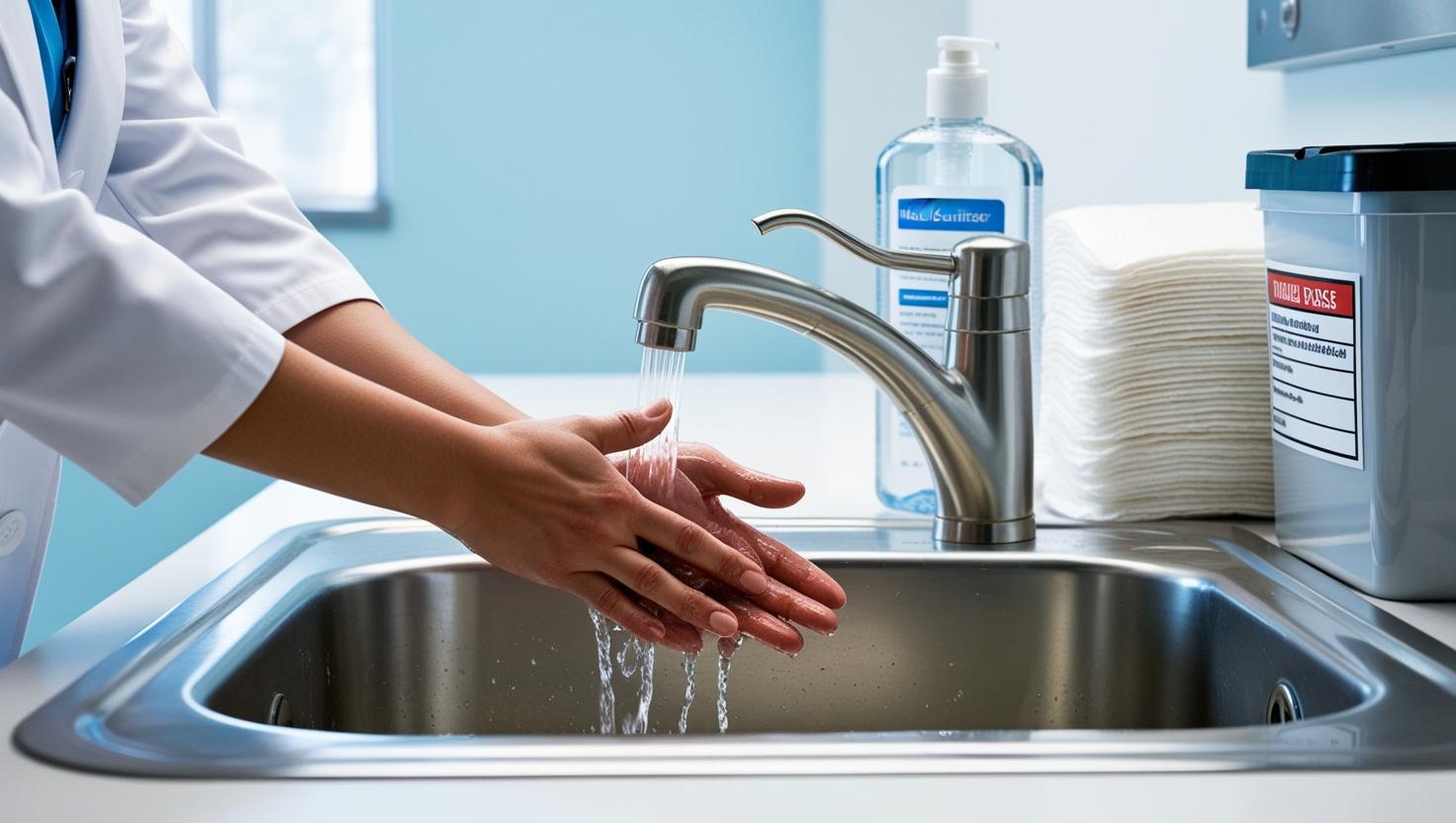
Why Regular Follow-Ups Are Crucial in Wound Healing for the Best Outcomes
Wound healing often feels like a complicated puzzle, doesn’t it? From proper dressing techniques to managing pain, there are many moving pieces that need to align perfectly for your wound to heal successfully. At Trinity Wound Care, we believe one of the most critical yet often overlooked pieces of this puzzle is regular follow-ups.
This article explores why follow-ups are indispensable for managing wounds effectively. By the end, you’ll understand how consistent monitoring not only accelerates healing but also minimizes the risk of complications like infections or delayed recovery. If you’re currently managing a wound, you’ll leave with actionable insights that can make a meaningful difference in your healing journey.
Introduction to Wound Care
Wound care is about more than just cleaning and dressing a wound. It’s an intricate process involving medical expertise, personalized treatment plans, and careful monitoring of the healing process.
Why Comprehensive Care Matters
Effective wound care:
Promotes healing: Speeds up the natural healing process.
Prevents infections: Reduces the risk of bacteria entering your wound.
Minimizes scarring: Ensures better cosmetic outcomes for your skin.
At the center of this process are skilled healthcare professionals who use advanced treatments like negative pressure wound therapy, bioengineered skin substitutes, and specialized dressings to ensure the best possible outcomes. Importantly, no matter how sophisticated the care plan, its success depends on regular follow-ups that track healing progress and make adjustments as needed.
Trust Trinity Wound Care to provide you with a seamless, professional experience—bringing hospital-quality care directly to your doorstep.
Factors Affecting Wound Healing
Did you know that your age, diet, and even underlying health conditions can drastically impact how fast and effectively your wound heals? These factors are critical in shaping a personalized care plan.
Key Influences on Healing
Age and Nutrition:
Young adults often heal faster, while older individuals may take longer due to slower cell regeneration. A balanced diet rich in proteins, vitamins, and minerals can significantly speed up recovery. Adequate hydration is also essential.Blood Flow:
Healthy circulation is crucial for carrying nutrients and oxygen to your wound. Conditions such as peripheral artery disease or diabetes can impair blood flow and delay healing. Regular gentle movement and certain therapies can enhance circulation.Medical Conditions:
Diabetes, kidney disease, or autoimmune disorders can increase your risk of infection and slow healing. A complete medical history helps providers anticipate and manage these risks effectively.
Follow-ups allow healthcare professionals to closely monitor these factors and make timely adjustments, ensuring you’re always on the best path toward recovery.
Wound Assessment

Wound assessments, conducted during follow-ups, are like vital checkups for your wound. They involve evaluating the wound bed, its edges, and the surrounding skin.
Why Regular Assessments Matter
Monitoring for Complications:
Your provider can identify infections, necrotic tissue, or delayed healing early, before they escalate into major issues.Adjusting Treatment:
Based on the assessment, your care team can recommend changes to dressings, medications, or therapies to optimize healing.
Photographic documentation and measurements may also be taken at each visit to objectively track progress over time.
Trinity Wound Care offers precise, detailed assessments that ensure no aspect of your wound care is overlooked.
Wound Management
Wound management goes beyond simply dressing the wound. It takes a holistic approach to healing, addressing:
Wound size, depth, and location.
Underlying conditions that could impact healing, such as diabetes.
Preventative measures to avoid further complications.
A Dynamic Process
Treatment plans are not static—they evolve as your wound heals. This may include switching to more advanced therapies or adjusting care routines at home. Your comfort, mobility, and lifestyle are all considered to provide a truly personalized healing experience.
Looking for expert care that comes to you? Trinity Wound Care is ready to deliver top-tier wound management, right where you are.
Pain Management

Pain is an unfortunate reality for many dealing with wounds, and unmanaged pain can actually slow the healing process.
Addressing Pain Effectively
Medications and Therapies:
Your provider may suggest over-the-counter or prescription medications, as well as advanced therapies like nerve blocks or topical agents.Patient Empowerment:
Education plays a huge role. Understanding your pain and knowing how to manage it at home—whether through positioning, cold packs, or relaxation techniques—is key to comfort and faster recovery.
Tracking pain levels regularly helps ensure you’re healing without unnecessary suffering.
Risk of Infection

An infected wound is one of the most common and serious complications in wound care. Common signs of infection include increased redness, swelling, discharge, or worsening pain.
Infection Prevention Strategies
Healthcare providers at Trinity Wound Care use evidence-based methods to prevent infections, such as:
Proper cleaning and debridement of wounds.
Applying advanced, infection-fighting dressings.
Utilizing negative pressure wound therapy.
Our mobile wound care clinic ensures frequent, reliable follow-ups that catch infections early and keep your healing on track.
Patient Education and Involvement

You are a vital part of the wound care process! Regular follow-ups are an opportunity to learn:
How to properly clean your wound.
Warning signs of complications like infection.
How lifestyle changes, such as better nutrition or hydration, can improve healing.
When you’re equipped with knowledge, you become an active participant in your healing journey—leading to better outcomes and greater confidence in your care.
Interdisciplinary Collaboration
Wound healing doesn’t happen in isolation. At Trinity Wound Care, physicians, nurses, physical therapists, and other specialists collaborate closely to tailor care for every patient.
Coordinated Care for Better Results
Your wound care plan is comprehensive and addresses every angle.
Communication between specialists is seamless, ensuring consistency in care.
Regular follow-ups allow this collaborative effort to stay dynamic, adjusting to your progress and needs.
Addressing Psychosocial Aspects
Living with a wound can be challenging both physically and emotionally. Feelings of anxiety or depression can sometimes hinder recovery.
Supporting the Whole Person
During follow-ups, your healthcare provider may help:
Recognize if you’re struggling emotionally.
Recommend counseling or support groups.
Incorporate stress-relief techniques into your care plan.
By nurturing both your body and mind, Trinity Wound Care helps you achieve holistic wellness.
The Importance of Regular Follow-Ups
At this point, it’s clear that wound care doesn’t end with the right treatment plan. Regular follow-ups are the glue that holds everything together. They ensure:
Your wound is progressing as it should.
Any arising complications are tackled early.
Your treatment is adjusted to fit your needs.
At Trinity Wound Care, we leverage digital communications and flexible scheduling to make attending follow-ups simple and convenient, bringing peace of mind along with expert care.
Take Charge of Your Healing Journey
When it comes to wound care, every detail matters, and regular follow-ups are the key to ensuring nothing gets missed. Trinity Wound Care is here to guide you every step of the way with personalized, compassionate care brought directly to your home.
Contact Trinity Wound Care today to schedule your follow-up and experience the gold standard in mobile wound care. Let us help you achieve optimal healing with minimal disruption to your daily life.


